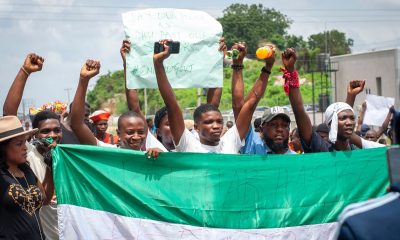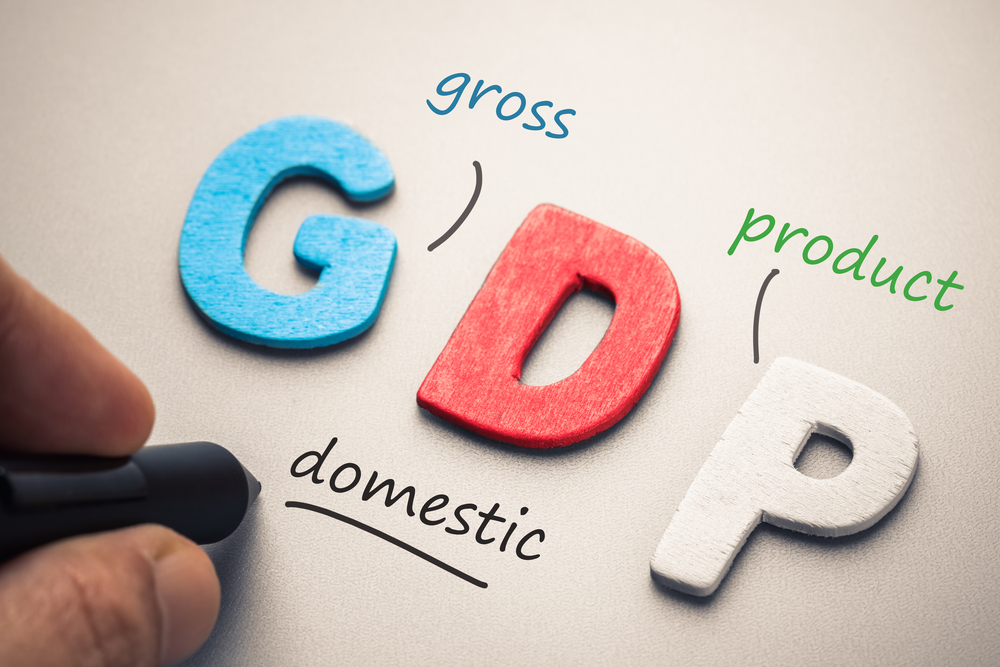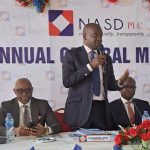Economy
CBN Expects Nigeria’s Q2 2020 GDP to Slip 1.03%
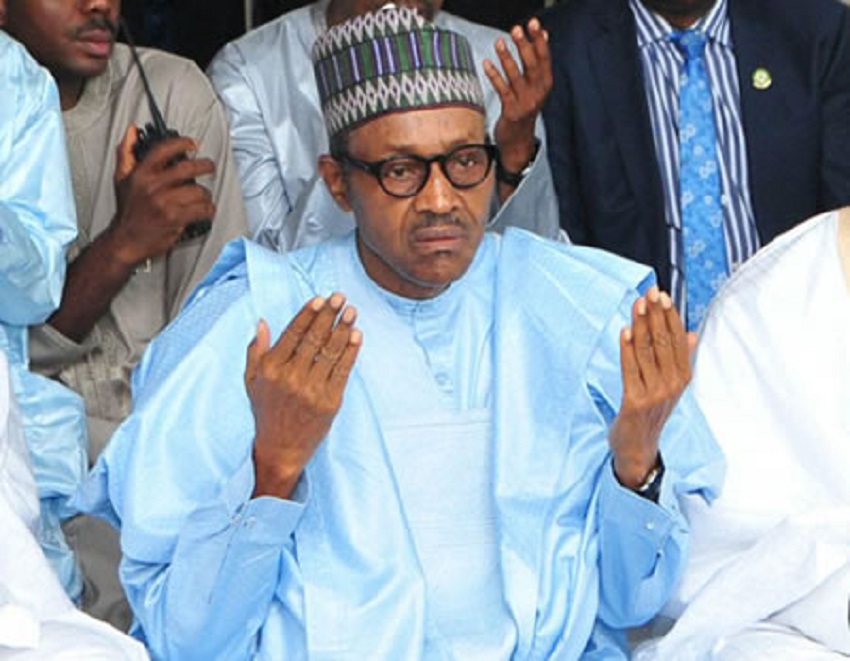
By Dipo Olowookere
The Central Bank of Nigeria (CBN) has said it expects the Gross Domestic Product (GDP) of the country to contract by 1.03 per cent in the second quarter of 2020.
This information was revealed by a member of the board of directors of the CBN, Mr Mahmud Isa-Dutse, who is also a Permanent Secretary in the Federal Ministry of Finance.
Mr Isa-Dutse, who was at the last Monetary Policy Committee (MPC) of the apex bank held on July 20, 2020, in Abuja, said the fiscal authorities will have to intensify effort aimed at addressing security challenges and other headwinds constraining the country’s growth and development.
According to him, the global health crisis since the beginning of this year will make Nigeria to continue to reel from the effects, particularly as policy headroom gets tighter.
“Although the growth data for Q2 2020 is still being awaited from the National Bureau of Statistics (NBS), in-house projections by the CBN indicate that real GDP is expected to contract by -1.03 per cent in Q2 2020 which translates to a reduction of 2.9 percentage points when compared to the actual growth rate of 1.87 per cent obtained in Q1 2020.
“However, the annual real GDP predictions from multiple sources are grimmer for 2020. The World Bank and IMF project that the Nigerian economy will contract by -3.0 per cent and -5.4 per cent, respectively, in 2020, while CBN forecast suggests a possible contraction not exceeding a magnitude of -1.65 per cent in 2020,” the economist said during the MPC meeting, where he voted for the benchmark interest rate to remain at 12.50 per cent, the asymmetric corridor at +200/-500 basis points around the MPR, the liquidity ratio at 30.0 per cent and the Cash Reserve Ratio (CRR) left at CRR at 27.5 per cent.
Business Post reports that the stats office is expected to release the Q2 2020 GDP numbers next Monday morning and from various observers, the economy is expected to shrink as a result of the COVID-19 pandemic.
At the MPC meeting, Mr Isa-Dutse noted that he voted to have all the rates unchanged because it was the reasonable thing to do “to allow enough time for recent initiatives to permeate the economic system.”
According to him, a tightening policy option may dampen inflationary pressures, promote portfolio flows and reserve accretions and it may also constrain credit extension and worsen the pandemic-induced slump in output.
“A loosening stance of monetary policy on the other hand may be considered appropriate in view of the current recessionary quagmire confronting the country.
“However, the economy is already in a loosening mode given the recent policy rate cut in May 2020.
“Moreover, the huge monetary and fiscal stimulus being pumped into the economy has increased liquidity,” he said.
Economy
NASD Reiterates Commitment to Strategic Direction, Strong Governance
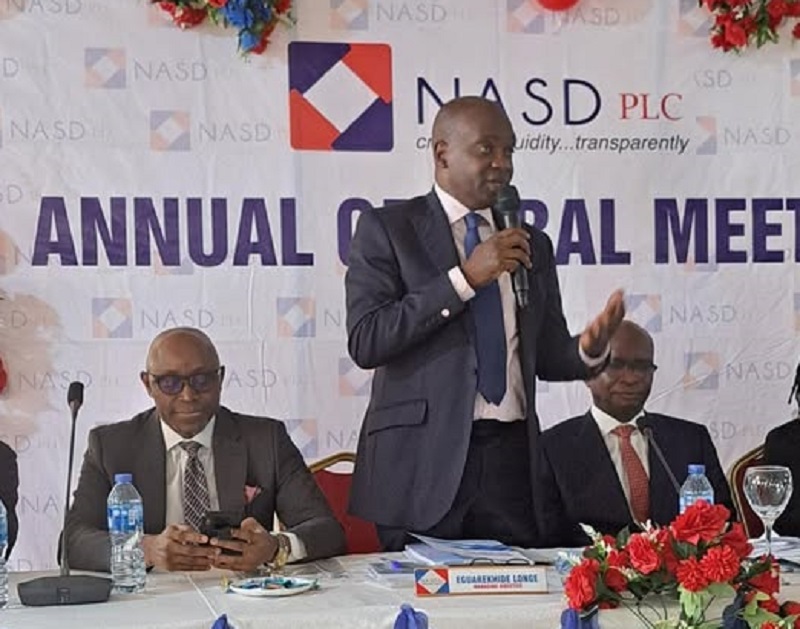
By Adedapo Adesanya
NASD Plc, which operates Nigeria’s Over-the-Counter (OTC) securities exchange, has reaffirmed its commitment to reinforcing its long-term strategic direction and governance framework.
The exchange recently convened its major shareholders, board members, and executive management at a high-level stakeholder retreat in Lagos.
NASD said, “The retreat held in Lagos brought together key institutional stakeholders for in-depth discussions on NASD’s evolving role within Nigeria’s capital market ecosystem.
“The engagement provided a structured platform for shareholders and management to align on strategic priorities necessary to deepen institutional strength, enhance market relevance, and support sustainable growth.”
The company noted that deliberations focused on the importance of strong shareholder collaboration, disciplined strategy execution, and equitable governance practices to further strengthen investor confidence and long-term value creation.
The statement added that participants exchanged views on navigating market complexity, adapting to regulatory and economic changes, and ensuring that the Exchange continues to operate in line with global best practices while addressing the specific needs of Nigeria’s over-the-counter market.
NASD emphasised that the retreat highlighted the critical role of close alignment among shareholders, the Board, and executive leadership in shaping the Exchange’s next phase of development. By encouraging open dialogue and shared strategic intent, the engagement reaffirmed NASD’s commitment to transparency, institutional resilience, and leadership within the capital market.
The session concluded with a group engagement reflecting the depth of experience, governance oversight, and collective responsibility guiding NASD’s strategic outlook as it continues to enhance its contribution to Nigeria’s financial market architecture.
NASD posted a standout performance in 2025, with its market diversification strategy delivering a surge in listings, deeper market activity, and a sharp expansion in market value across its alternative trading platforms.
Last year, the market capitalisation on the exchange more than doubled to N2.12 trillion, representing a 106 per cent increase from N1.03 trillion in 2024. The number of admitted securities also rose marginally to 47, up from 45 in the prior year, reflecting a 4 per cent growth.
The NASD Securities Index (NSI) rose by 18 per cent to 3,543.74 points, compared with 3,002.68 points in 2024. Similarly, the NASD Pension Index advanced by 21 per cent to 1,032.88 points, up from 954.33 points.
Trading volumes surged significantly during the year. Total volume traded climbed to 14.03 billion units, marking a 377 per cent increase from 2.98 billion units in 2024. However, this sharp rise in volume contrasted with a decline in transaction value, which fell by 43 per cent to N59.29 billion, down from N103.96 billion in 2024.
The total number of deals executed on the platform dropped to 6,456, representing a 26 per cent decline from 8,724 deals recorded the previous year, indicating fewer but larger or more strategic transactions.
The exchange also recorded notable listings in 2025, with Infrastructure Credit Guarantee Company PLC (InfraCredit), Paintcom Investment Nigeria PLC (Paintcom), and MRS PLC admitted to trading.
Economy
Customs Area 1 Command Generates N288.8bn to Beat 2025 Target by 33%

By Bon Peters
The Area 1 Command of the Nigeria Customs Service (NCS) in Port Harcourt, Rivers State, surpassed its 2025 revenue target by generating about N288.8 billion.
In the preceding financial year, the command generated N200.8 billion as revenue, indicating a year-on-year growth of 43.83 per cent.
Addressing journalists in Port Harcourt, the Customs Area 1 Controller, Comptroller Salamatu Atuluku, disclosed that the target for the command last year was N216.9 billion, indicating that this was surpassed by N71.8 billion or 33.1 per cent.
She attributed this achievement to the effectiveness of improved compliance monitoring, enhanced cargo examination processes, automation-driven controls, and sustained stakeholder sensitization.
According to her, the monthly revenue performance remained consistently strong throughout the year, with the highest collection recorded in October 2025 at N33.7 billion.
On export trade facilitation, she hinted that in line with the federal government’s economic diversification agenda, the command intensified efforts toward facilitating legitimate export trade, adding that within the year under review, it processed a total export volume of over a million metric tons, comprising both oil and non-oil commodities with a Free on Board (FOB) value of $463.6 million, which she said contributed meaningfully to Nigeria’s foreign exchange earnings.
In addition, Ms Atuluku stated that N838.02 million was paid as Nigeria Export Supervision Scheme (NESS) charges for both oil and non-oil exports during the year, noting that this reflected an increased exporter participation, improved documentation compliance, and the command’s deliberate efforts to streamline export procedures while ensuring adherence to extant regulations.
On anti-smuggling and enforcement activities, it was disclosed that the command sustained vigorous enforcement operations throughout 2025, deploying intelligence-led interventions, risk profiling, and routine cargo examinations to curb smuggling and protect national interests, resulting in the interception of undeclared pharmaceutical products at the NACHO shed.
The items intercepted included Progesterone 100mg/2ml, and Isifrane IP 250ml among others, discovered in three packages without the mandatory NAFDAC regulatory certification, contrary to import guidelines governing pharmaceutical products, the Controller stated.
In the year under review, the personnel of the command benefitted from periodic training programs, sensitization sessions, operational briefings, and system-focused engagements, particularly in areas of customs automation, risk management, enforcement procedures, and trade facilitation.
On infrastructural development, the command renovated the Quarter Guard, thereby enhancing access control, security coordination, and command presence at the main entry point, including the Command Staff Clinic which was renovated and upgraded to improve healthcare delivery and working conditions for medical personnel, and beneficiaries.
Also, the command executed a Corporate Social Responsibility (CSR) intervention on December 11, 2025, at the Model Primary School I and II, Orominike, D-Line, Port Harcourt, with the donation of customs-branded notebooks, school bags, and school uniforms, aimed at supporting basic education and easing the burden on pupils and parents within the host community.
Economy
FrieslandCampina, Okitipupa Trigger 0.64% Loss at NASD OTC Bourse
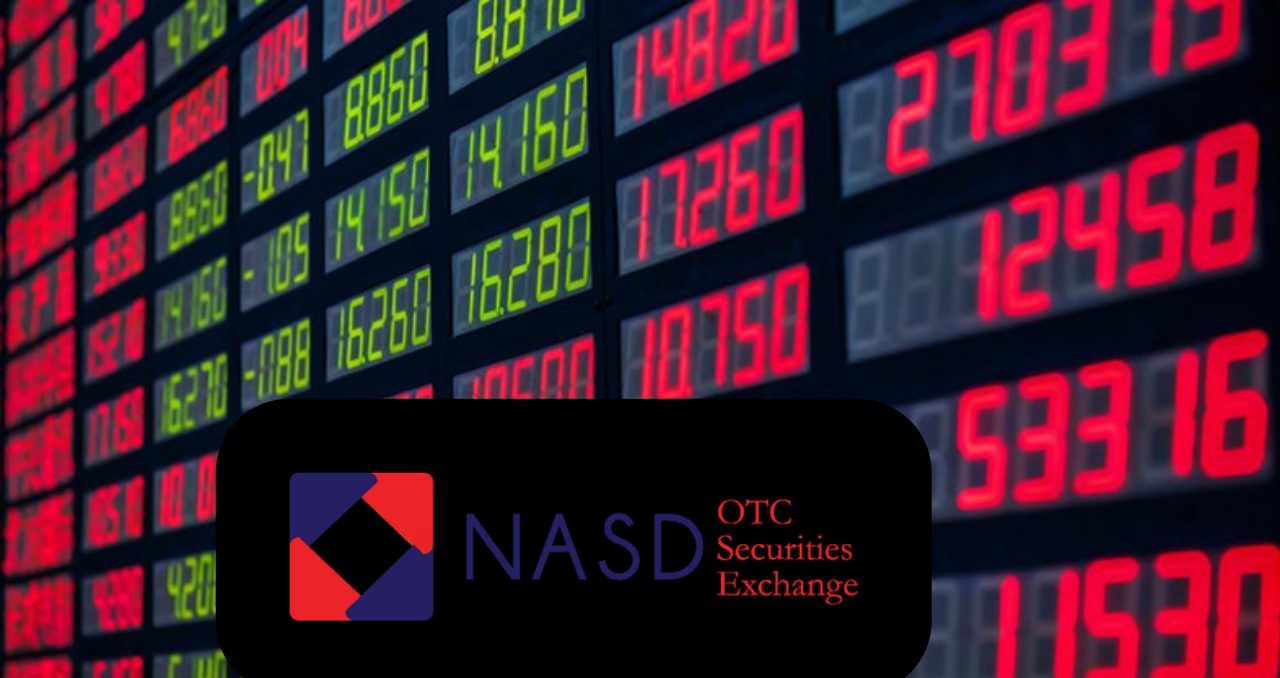
By Adedapo Adesanya
Five securities caused the NASD Over-the-Counter (OTC) Securities Exchange to experience a setback of 0.64 per cent on Monday, February 2.
During the first trading session of February 2026, FrieslandCampinaWamco Nigeria Plc shrank by N4.46 to end at N63.54 per unit versus the previous session’s N68.00 per unit, as Okitipupa Plc depreciated by N3.83 to close at N230.77 per share versus last Friday’s N234.60 per share.
Further, Central Securities Clearing System (CSCS) dropped 50 Kobo to sell at N40.00 per unit compared with the previous closing price of N40.50 per unit, UBN Property Plc dipped by 21 Kobo to N1.99 per share from N2.20 per share, and Acorn Petroleum Plc lost 3 Kobo to end at N1.35 per unit versus N1.38 per unit.
As a result, the market capitalisation went down by N13.98 billion to settle at N2.158 trillion, in contrast to the previous value of N2.171 trillion, and the NASD Unlisted Security Index (NSI) contracted by 23.35 points to settle at 3,606.76 points compared with last Friday’s closing value of 3,630.11 points.
Amid the loss, Geo-Fluids Plc managed to finish green after it chalked up 9 Kobo to sell at N6.84 per share versus the N5.75 per share it ended in the last trading day.
Yesterday, the volume of securities traded by investors surged by 1,238.5 per cent to 3.9 million units from 287,618 units, the value of securities increased by 1,075.2 per cent to N36.0 million from N3.1 million, and the number of deals soared by 90.5 per cent to 40 deals from 21 deals.
At the close of trades, CSCS Plc remained the most traded stock by value (year-to-date) with 15.4 million units valued at N623.9 million, followed by FrieslandCampina Wamco Nigeria Plc with 1.7 million units worth N110.2 million, and Geo-Fluids Plc with 10.6 million units sold for N69.9 million.
CSCS Plc was also the most active stock by volume (year-to-date) with 15.4 million units traded for N623.9 million, trailed by Geo-Fluids Plc with 10.6 million units worth N69.9 million, and Mass Telecom Innovation Plc with 10.1 million units transacted for N4.1 million.
-

 Feature/OPED6 years ago
Feature/OPED6 years agoDavos was Different this year
-
Travel/Tourism9 years ago
Lagos Seals Western Lodge Hotel In Ikorodu
-

 Showbiz3 years ago
Showbiz3 years agoEstranged Lover Releases Videos of Empress Njamah Bathing
-

 Banking8 years ago
Banking8 years agoSort Codes of GTBank Branches in Nigeria
-

 Economy3 years ago
Economy3 years agoSubsidy Removal: CNG at N130 Per Litre Cheaper Than Petrol—IPMAN
-

 Banking3 years ago
Banking3 years agoSort Codes of UBA Branches in Nigeria
-

 Banking3 years ago
Banking3 years agoFirst Bank Announces Planned Downtime
-

 Sports3 years ago
Sports3 years agoHighest Paid Nigerian Footballer – How Much Do Nigerian Footballers Earn





